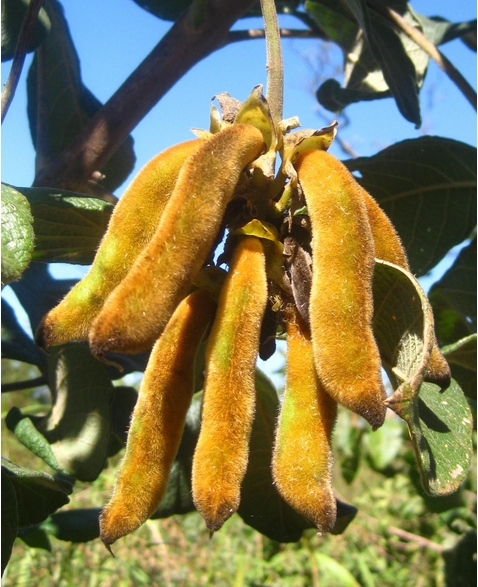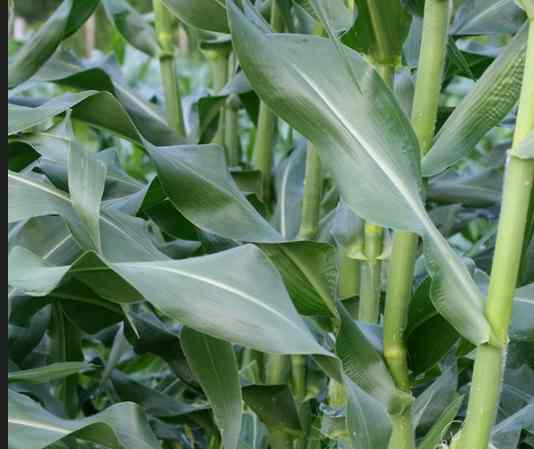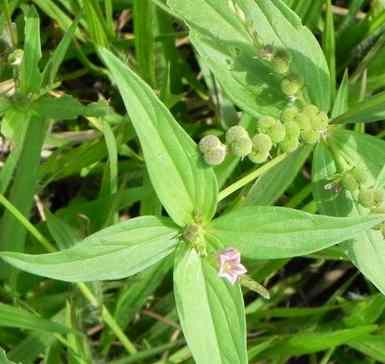
support@yorubalibrary.com
+2348073529208, 07038599574

Mucuna pruriens, commonly known as Yerepe in Yoruba, is a tropical legume famous for its medicinal properties. This plant, often found in Africa and Asia, is known for its role in traditional medicine, where it is used to treat various ailments.
Please note, while Yerepe has its own medicinal value in Yoruba Traditional medicine practice, yet it is very dangerous. Holding it with bare hand will cause discomfort, hitching and so on.
This is why a proverb says "Yerepe ni mi, ti mi o ni ibikan a ngba mu" (Often use to express how powerful and formidable a person is)
Key Facts
Category: Leaf/Bulb
Botanical Name: Mucuna pruriens
Common Name: Devil's Bean
Yoruba name: Yerepe (or Werepe)
Igbo Name: Nil
Hausa Name: Nil
Botanical Characteristics of Yerepe
Yerepe is a climbing shrub belonging to the Fabaceae family. It is characterized by its long, velvety pods and distinctive, itchy hairs that cover the seed pods. The plant produces purple or white flowers and can grow up to 15 meters in length, often winding around other plants for support.
Traditional Uses of Yerepe
In Yoruba culture, Yerepe has a variety of traditional uses:
1. Aphrodisiac:
Yerepe is traditionally used to enhance libido and fertility. It is believed to improve sexual health and vitality.
2. Nervous System Support:
The plant is used to calm nerves and reduce anxiety, promoting mental well-being and relaxation.
3. Energy and Stamina:
Yerepe is consumed to boost energy levels and stamina, making it popular among those who engage in physically demanding activities.
Want to treat common ailments such as Malaria, Cough, Measles, Typhoid, Pile etc naturally without spending much? Grab a copy of Authentic Herbal Solutions: 15 Common Ailments & Their Natural Cures. A practical eBook recommended for everyone regardless of tribe, religion or association. Order below or Download sample here
AUTHENTIC HERBAL SOLUTION #4KOne Yoruba proverb says "Bí olóde ò kú, òde rè kì í wu Gbégi". Do you know that Gbégi is actually a leaf/plant? Get Yoruba Proverbs on Plants and Herbs, which is a collection of Untold Wisdoms Hidden in Leaf and plants comprising their Life Applications & Moral Teachings. Order below or download sample here
YORUBA PROVERBS ON PLANTS #4KMedicinal Benefits of Mucuna pruriens
Yerepe is valued for its wide range of medicinal properties:
1. L-DOPA Content: One of the primary active ingredients in Yerepe is L-DOPA, a precursor to dopamine. This makes it beneficial in managing conditions like Parkinson's disease by enhancing dopamine levels in the brain.
2. Antioxidant Properties: The plant is rich in antioxidants that help protect the body from oxidative stress, reducing the risk of chronic diseases and supporting overall health.
3. Anti-inflammatory Effects: Yerepe is used to reduce inflammation and alleviate pain, making it helpful for conditions such as arthritis and joint pain.
4. Mood Enhancement: The L-DOPA content also aids in improving mood and mental health, helping to alleviate symptoms of depression and anxiety.
5. Blood Sugar Regulation: Studies suggest that Yerepe may help regulate blood sugar levels, making it beneficial for individuals with diabetes or those at risk.
Modern Applications of Yerepe
With increasing interest in natural and holistic remedies, Mucuna pruriens is gaining attention in modern medicine. Its extracts are used in supplements and herbal formulations to support neurological health and overall wellness.
Conclusion
Yerepe (Mucuna pruriens) is an important plant in Yoruba traditional medicine, offering numerous health benefits. Its historical significance and potential for modern applications highlight its value as a natural remedy.
Have you heard of our Yoruba Herb Dictionary? This contains names of Yoruba Leaf, Roots, Barks, Characteristics, Properties & Identification with HD Pictures. Order below or download sample here
A-Z HERBS & LEAF DICTIONARY #4K
Know more about the Yoruba traditional uses and he…

Learn about Ewe Aran, a potent Yoruba medicinal le…